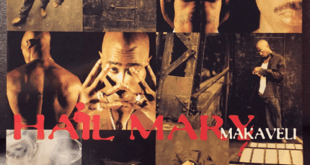
2PAC – Discography
Tupac Amaru Shakur (born Lesane Parish Crooks; June 16, 1971 – September 13, 1996), widely known as 2Pac and Makaveli, was an iconic American rapper and actor. With over 75 million records sold worldwide, he remains one of the best-selling music artists in history. His legendary double-disc album All Eyez on Me (1996) and Greatest Hits (1998) rank among the best-selling albums in the U.S. Shakur is celebrated as one of the most influential rappers of all time, with publications like Rolling Stone placing him among the greatest artists in music history, ranking him 86th on their list of The 100 Greatest Artists of All Time. His cultural impact extends beyond music, solidified by his induction into the Rock and Roll Hall of Fame on April 7, 2017.
Tupac Amaru Shakur (2 Pac) – Discography
Missing a mixtape or album? We’re updating soon — suggest it here!
2PAC – Strictly 4 My N.I.G.G.A.Z… (DE) – 1993
2 Pac – Me Against The World – 1995
2 Pac – Tupac (Makaveli) – The Don Killuminati, The 7 Day Theory – 1996
2PAC – 1 In 21 (A Tupac Shakur Story) – 1997
2PAC – R U Still Down (Remember Me) – 1997
2PAC – Until The End Of Time – 2001
2PAC – The Rose Vol. 2 (US) – 2005
2PAC – The Rose That Grew From Concrete Vol. 1 (US) – 2000
2PAC – Better Dayz (DE) – 2002
2PAC – The Prophet The Best Of The Works – 2003
2Pac – Deathrow Presents Nu-Mixx Klazzics – 2003
2Pac – Nu-Mixx Klazzics – 2003
2PAC – Loyal To The Game (DE) – 2004
2Pac – Live at the House Of Blues (Live) – 2005
2PAC – The Prophet Returns (EU) – 2005
2Pac – The Best Of 2Pac – Part 1 Thug – 2007
2Pac – The Best Of 2Pac – Part 2 Life – 2007
2Pac – Beginnings The Lost Tapes 1988-1991 – 2007
2Pac – Nu Mixx Klazzics Vol. 2 (Evolution Duets And Remixes) – 2007
2PAC Singles and more search on website or click here
🕊️ Legacy and Impact
Tupac Shakur’s influence on music, culture, and activism transcends generations. As both a gifted lyricist and a passionate social commentator, 2Pac used his art to highlight systemic injustices, poverty, police brutality, and the struggles of Black communities in America. His ability to switch between raw street poetry and heartfelt introspection set him apart in a genre often dominated by bravado.
Through tracks like Dear Mama, Changes, and Keep Ya Head Up, Tupac humanized the pain and hope of the marginalized. His words weren’t just music—they were messages. He became the voice of a generation that saw themselves reflected in his anger, vulnerability, and resilience.
Beyond music, 2Pac was a poet, actor, and activist. He appeared in critically acclaimed films like Juice, Poetic Justice, and Above the Rim, proving his range as a performer. His charisma and intellect made him a powerful figure, both admired and feared by mainstream media.
After his untimely death in 1996 at the age of 25, Tupac became a symbol of artistic martyrdom. His posthumous releases continued to dominate charts, and his influence is still present in modern hip-hop, with artists like Kendrick Lamar, J. Cole, and Eminem citing him as a key inspiration.
Conclusion
Tupac Shakur’s discography is more than just a collection of albums—it’s a living archive of passion, resistance, and poetic brilliance. His body of work spans across life and death, with unreleased verses and timeless lyrics still surfacing decades later. He was complex and contradictory, blending the thug persona with deep philosophical and political thought.
In the ever-evolving world of hip-hop, 2Pac remains a foundational pillar. Whether through the fiery rhymes of Hit ‘Em Up, the soul of So Many Tears, or the emotional vulnerability of Ghetto Gospel, his music continues to educate, inspire, and resonate.
Tupac didn’t just make music. He made history. And through his words, he remains immortal.
 SongsLover – Latest tracks, top 100 hits, best of month by songslover High-Quality Music Downloads at Your Fingertips
SongsLover – Latest tracks, top 100 hits, best of month by songslover High-Quality Music Downloads at Your Fingertips 




![Ye - god [EP]](https://songslover.li/wp-content/uploads/Ye-god-310x165.jpg)









